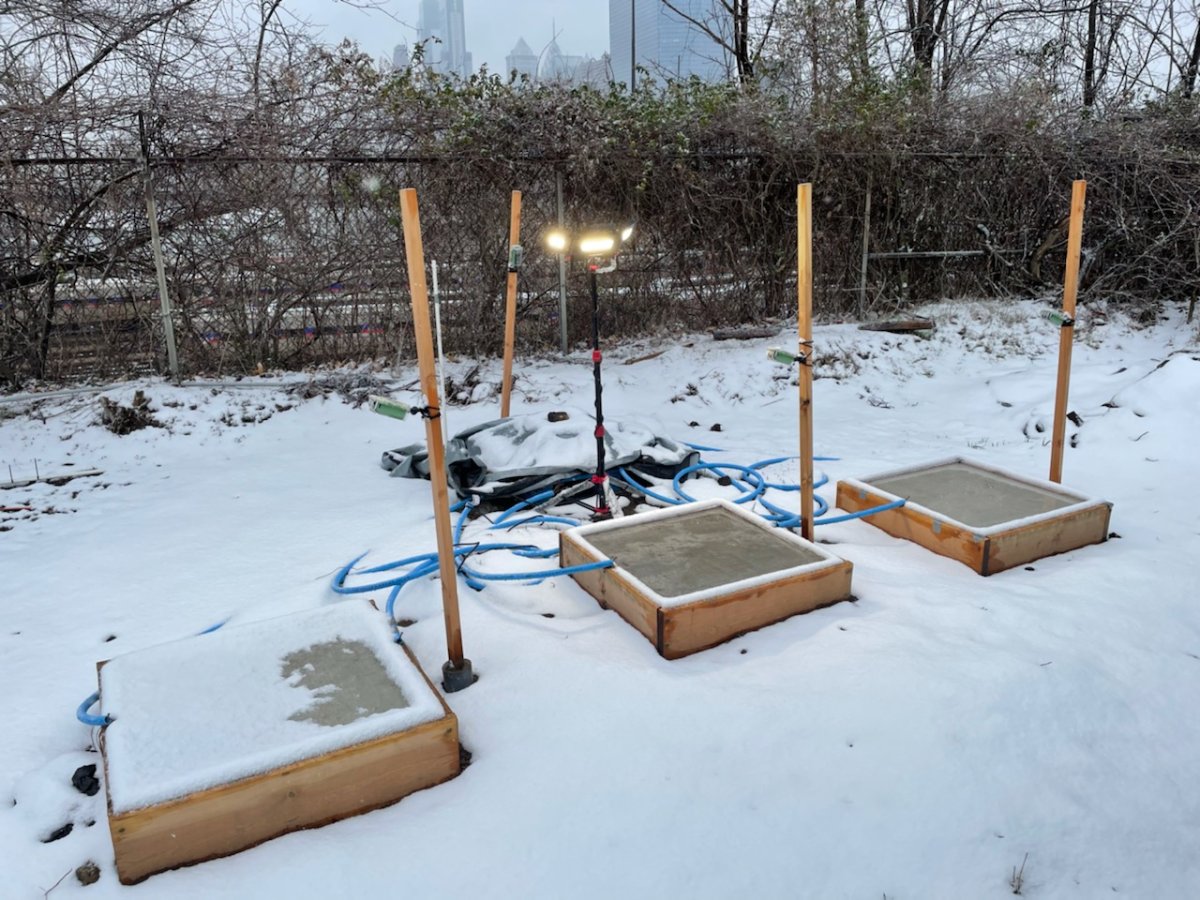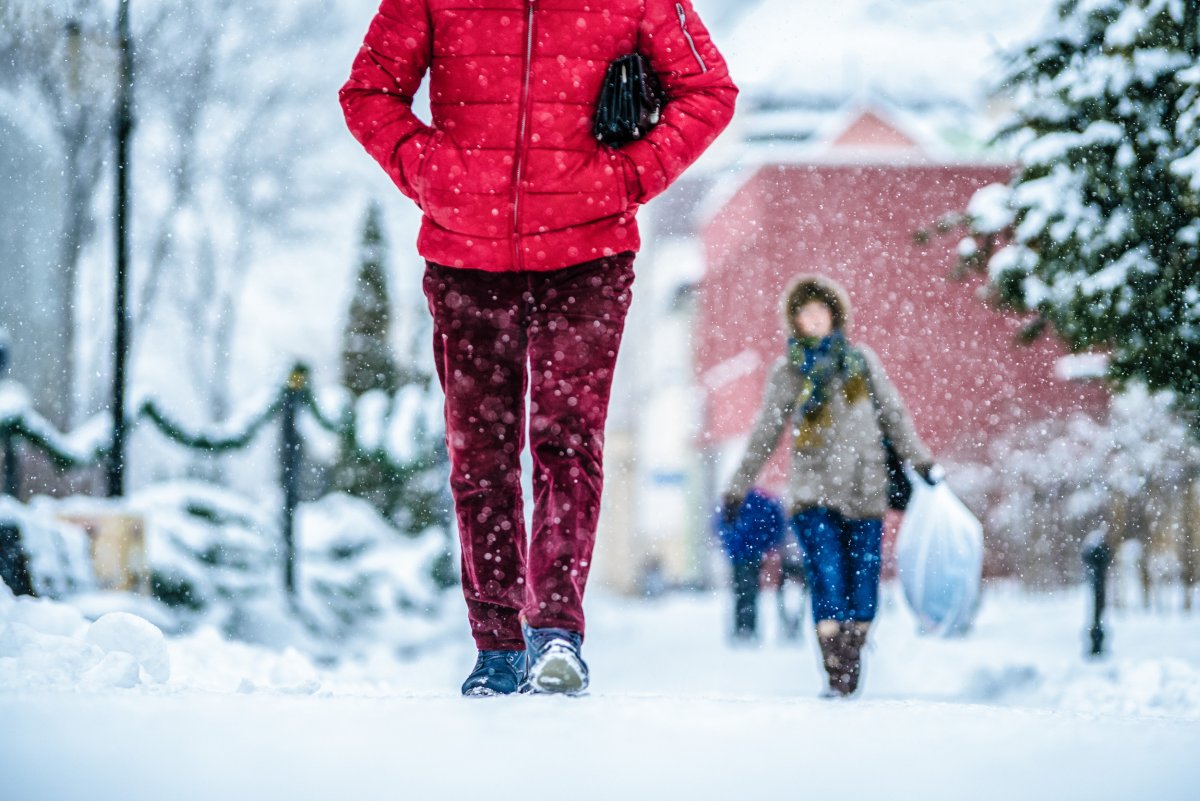U.S. cities could be getting self-heating sidewalks to tackle snowstorms and icy weather.
Researchers at Drexel University College of Engineering in Pennsylvania have detailed how a special, new concrete warms itself and melts the falling snow. It was created over a period of five years, and until recently, was only tested in a laboratory setting. However, now a paper, published in the American Society for Civil Engineering's Journal of Materials in Civil Engineering, says that it does indeed work in the real world.
There is already slabs of this special concrete on Drexel University's campus. With the cold winter temperatures so far this year, they have continued to ward off snow and frost. The innovative new concrete could, in future, help clear walkways and highways amid freezing temperatures, putting snow shovels and salt to the wayside.

The concrete was made in an attempt to create more environmentally responsive methods to warding off the disruptive impacts of freezing weather. Methods like this are particularly sought-after in the northern U.S. and the National Highway Administration put snow and ice removal operations at $2.3 billion a year.
The concrete slabs work due to low-temperature liquid paraffin, the study reports. This material releases heat when it turns from liquid, its form at room temperature, to a solid. Previous studies found that liquid paraffin produces heat when temperatures drop, making this material perfect to incorporate in the new concrete.
"One way to extend the service life of concrete surfaces, like roadways, is to help them maintain a surface temperature above freezing during the winter," Amir Farnam, PhD, an associate professor in the College of Engineering said in a summary of the findings. His Advanced Infrastructure Materials Lab has been leading the research.
"Preventing freezing and thawing and cutting back on the need for plowing and salting are good ways to keep the surface from deteriorating," Farnam added. "So, our work is looking at how we can incorporate special materials in the concrete that help it to maintain a higher surface temperature when the ambient temperature around it drops."
Much of the U.S. is susceptible to freezing temperatures – and widespread disruption as a result. Parts of California have recently seen intense blizzards, during which the National Weather Service warned people to stay off the roads.
More recently, weather alerts have also been issued in 10 southern states, with temperatures expected to plunge below 32 degrees.

Weather patterns in the U.S. are becoming more unpredictable and extreme in recent years, meaning innovative solutions are welcome as officials look for new ways to deal with the changes.
Ice causes hazards on highways and walkways, as well as damaging the roads themselves. When temperatures fall below freezing, the ice can cause pressure on the concrete and enlarge cracks. This can increase the chance of potholes and other damage.
"We have demonstrated that our self-heating concrete is capable of melting snow on its own, using only the environmental daytime thermal energy, and doing it without the help of salt, shoveling or heating systems," Farnam said in a summary.
"This self-heating concrete is suitable for mountainous and northern regions in the U.S., such as Northeast Pennsylvania and Philadelphia, where there are suitable heating and cooling cycles in winter."
Do you have a tip on a science story that Newsweek should be covering? Do you have a question about weather? Let us know via science@newsweek.com.
Uncommon Knowledge
Newsweek is committed to challenging conventional wisdom and finding connections in the search for common ground.
Newsweek is committed to challenging conventional wisdom and finding connections in the search for common ground.
About the writer
Robyn White is a Newsweek Nature Reporter based in London, UK. Her focus is reporting on wildlife, science and the ... Read more
To read how Newsweek uses AI as a newsroom tool, Click here.






